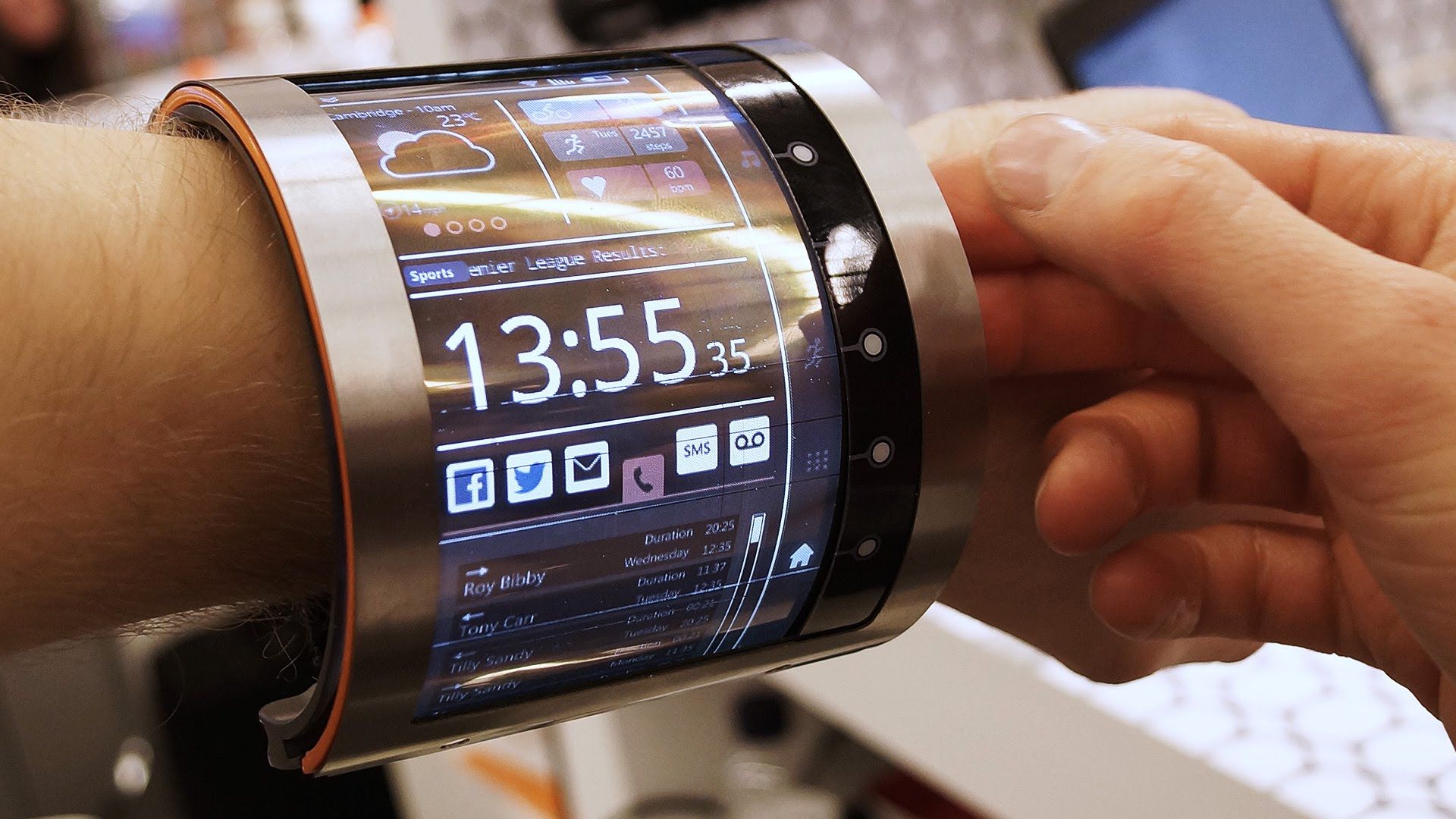Sometimes, it seems like the tech world is inexorably bending towards a future full of curved devices. At MWC in Barcelona, we saw yet another prototype display, this time from English firm FlexEnable. Now, this isn’t a working device of any kind — it’s essentially just a screen running a demo — and neither is FlexEnable a consumer electronics company. But the firm says its technology is ready to go, and it’s apparently in talks with unnamed hardware partners who want to make this sort of device a reality. How long until we see fully-fledged wristbands like this on the market? Eighteen months is the optimistic guess from FlexEnable’s Paul Cain.
The prototype uses plastic transistors to achieve its flexibility, creating what the company calls OLCD (organic liquid crystal display) screens. FlexEnable says these can achieve the same resolutions as regular LCD using the same amount of power, but, of course, they have that added flexibility. These transistors can be wrapped around pretty much anything, and also have uses outside of display technology. FlexEnable was also showing off thin flexible fingerprint sensors, suggesting they could be wrapped around a door handle to add security without it being inconvenient to the user.
The prototype we saw at MWC was encased in a stiff metal frame, like a lot of flexible displays, and although OLCD can flex a little, it’s not the sort of material you can endlessly bend and crease. That, says, Cain, will have to wait for flexible OLED displays, a technology that is going to need more development. Still, we are seeing truly flexible OLED prototypes popping up here and there, such as this device from Queen’s University, which lets you flex a screen to flick through the pages of a digital book. The future bends ever closer.
